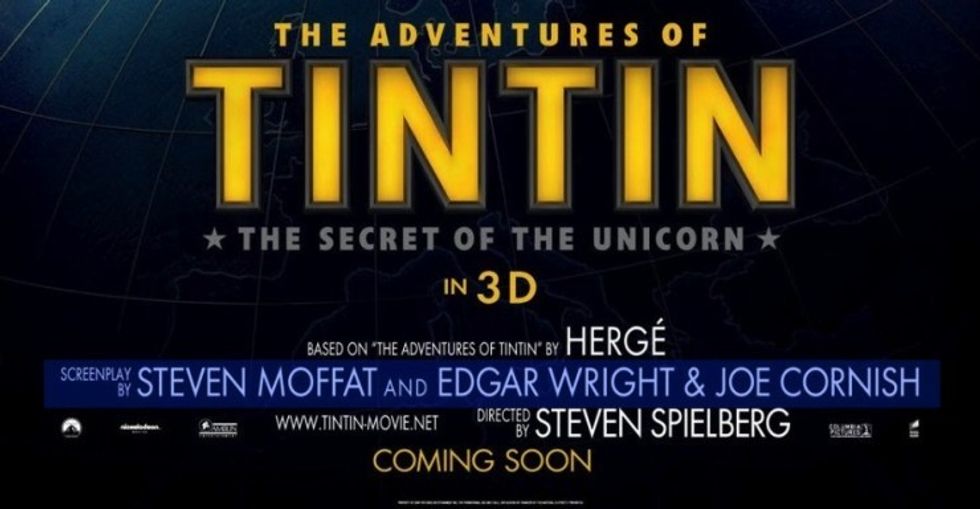The Difference Between 'Story By,' 'Screenplay By,' and 'Written By'
What is the difference between "Story by," "Screenplay by," and "Written by?" When you're working in the studio system, you're going to see a lot of different screenwriting credits. We explain what each means and their differences.

Writing credit matters.
It can help get you into the WGA, it affects residuals, and the more produced credits you get, the better it looks on your resume. But there is a slight complication with writing credits.
There are a few different kinds and they mean different things!
How do you know which credit you should get?
Today we're going to get you all the answers.
As always, let's start with a question...
What is the difference between "Story by," "Screenplay by," and "Written by?"
To answer this question, we consulted the WGA handbook on the matter. Let's go through possible credits one by one and detail them. Side note: Over here you can learn about adaptations
Story By
A common misconception of "Story by" is that it refers to the person who came up with the idea. Not quite...
What it actually means is that anyone who worked on a treatment or any other story outline is entitled to credit for the story.
You may also get this credit if you're hired to do a page one rewrite that gets you sole "Screenplay by" credit, despite the initial writer having written a complete script.
The first writer on an original screenplay is entitled to a shared "Story by" credit. That bylaw is called the "Irreducible Story Minimum."
Screen Story by
If a writer gave some ideas and allowed other people to use those ideas as a jumping off point for the actual screenplay, then they are entitled to "screen story by" credit.
But... that only comes via arbitration, which we will cover later.
If that writer and their springboard idea were from a publication, they may receive credit as follows "Based on an X PROPERTY BY", an example of this would be 'Based on an article by So and So.'
Screenplay By
This credit goes to writers who physically wrote drafts or scenes that are included in the final version of the movie. "Screenplay by" can only be shared by three people or three teams of people.
That idea of 'teams of people' is where you might run into those jam-packed writing credits sections.
Written By
This is used when writers are entitled to both "Screenplay by" and "Story by" credit.
This does not apply to adaptations or any screenplay with source material; but that does not count newspapers, articles, or biographies.
As a rule "Written by" will not be shared by more than two writers.
The ampersand (&) vs. "and"
If the word "and" is found in between the names of two or three different screenwriters, that credit identifies the two or three different writers attached to the project during separate drafts.
The ampersand "&" means that the names are a writing team.

What does John August have to say?
John August's helpful blog has seen this question asked to John. Here is his answer:
“Scripts” and “screenplays” are interchangeable when it comes to feature films, but television scripts are always called scripts. (Except when they’re called teleplays, which is only in certain on-screen credits.) “Story” is more or less what it sounds like: the plot, the characters, the settings and tone. It differs from a script or screenplay only in that the dialog often isn’t written out, and the overall action may be somewhat compressed. A writer might be credited with the “story” for a movie, but not the “screenplay,” if he wrote a treatment but not the final script. Usually, if one writer handles both “story” and “screenplay,” he/she receives a more general “written by” credit.
Download The WGA Credits Handbook
When all else fails, click on the above link and let the WGA handle it. They'll take any questions you have to arbitration.
What is Arbitration?
According to the WGA, Legal Arbitration is...
"As a benefit to writers and companies alike, the Minimum Basic Agreement or “MBA” establishes an arbitration procedure for the binding resolution of disputes arising under its terms. Arbitration is similar to a civil trial. Instead of a judge or jury, a neutral arbitrator will be selected to hear and decide this dispute. Most MBA arbitrators have years of experience handling disputes under the Guild agreement."
Arbitration occurs when writers from film and Tv challenge the credits given on different episodes or feature films. This process happens a lot.
In an LA Times article from 1998, we learned that "Between 1993 and 1997, the credits on 415 films--over one-third of the number submitted for credits--were decided through arbitration conducted by the Writers Guild. Of these, about 40% involved disputes pitting writer against the writer in a contest over money, fame and prestige."
What's next? How long does it take to write a screenplay?
Maybe this is your first foray into the trade, or maybe you're stuck on act two and want to give up, but we've all asked "how long does it take to write a screenplay" at one point or another. So...how long will it take to finish your script?
Click the link to learn more!














